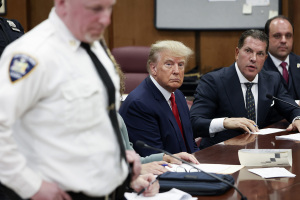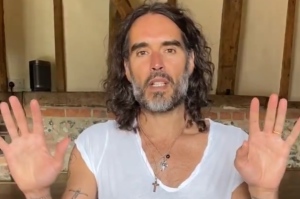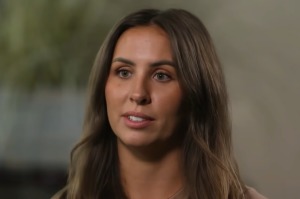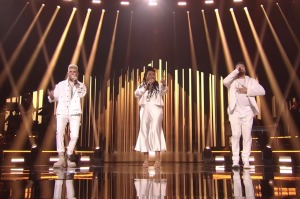ERLC Conference Shifts From Compassionate to Judgmental, Says Same-Sex Marriage Activist (Interview)
'Evangelicals for Marriage Equality' Spokesman Brandan Robertson Calls J.D. Greear's Tone Harsh
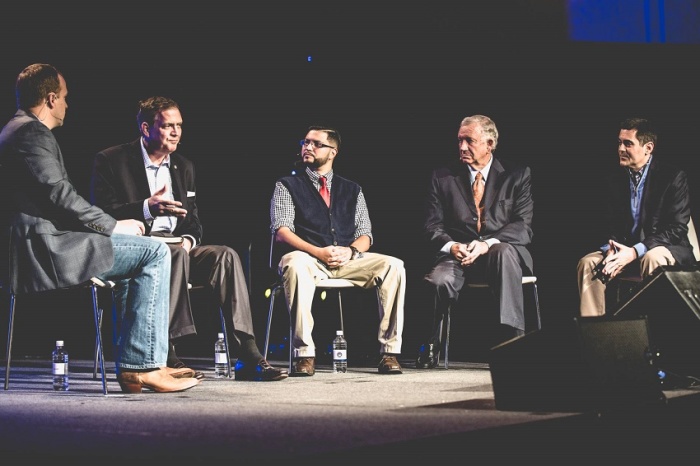
While most within the Southern Baptist Convention applauded the opportunity to openly discuss how Christians should respond to the growing cultural and political acceptance of gay marriage during a three-day conference hosted by the Ethics & Religious Liberty Commission, most in the LGBT community tracking the event were not so pleased.
So thankful for the many leaders at #ERLC2014 who have made efforts to be more compassionate. Sad that the conference ended on a harsh note
— Brandan J. Robertson (@BrandanJR) October 29, 2014Brandan Robertson, a spokesperson for Evangelicals for Marriage Equality and the director of The Revangelical Movement, attended the the conference in Nashville and told The Christian Post afterwards on Wednesday that although he felt welcome at the conference, a closing talk by Pastor J.D. Greear made him uncomfortable.
As a bit of background about his group, Robertson believes that EME is not compromising Christian beliefs and is instead focused specifically on gay unions receiving the same government recognition and rights as traditional married couples.
However, Greear, lead pastor of The Summit Church in Durham, North Carolina, said during the conference that the best way for churches to engage and minister to the culture is to reject the narrative that the Church has two choices in her posture toward the LGBT community — either alienate them or affirm the way they live, summarized the ERLC in its blog.
The best way to do this, he said, is to be Jesus-representing churches and to preach to the LGBT community the way Jesus would preach to them — full of grace and truth — not one or the other.
At one point, Greear said he wanted to "apologize to the LGBT community for (the Church) not standing up for them when they are mistreated." Then, as ERLC reported, he turned his attention and his challenge back to the body of believers: "We have to love our gay neighbor more than our position on sexual morality."
He added, "Jesus-representing churches will not be bullied into silence. If what the Bible says is true, it is unloving not to tell them (the truth)."
Below is CP's interview with Robertson.
CP: Describe why you felt the conference ended on a harsh note? What was it about J.D. Greear's message that upset you?
Robertson: My whole experience at the conference was positive. It was very clear to me that the SBC was intentionally trying to shift their tone on LGBTQ issues and become more compassionate and open to rethinking some important topics like reparative therapy, sexual orientation, and even civil marriage equality.
However, when J.D. Greear, a man I respect and had a brief but encouraging conversation with at the conference, closed the conference, his tone did not seem to be one of compassion but of judgment. Throughout his session, he said some things like orientation change is possible (if not in this life, in heaven). He compared bloggers who disagreed with him to the people that murdered John the Baptist, he said that if his son ever came to him and disagreed with him about the issue of homosexuality, he would love him but remind him that judgment day is coming, etc.
His tone was just not in line with that of people like Russell Moore and Glenn Stanton, two men who spoke at the conference and did so with tremendous graciousness, humility, and conviction. After being received with such a warm welcome, I felt very pushed away by Greear. He seemed to make the case that one couldn't be a faithful Christian and disagree about these issues, which I think is one of the most damaging and false statements one can make.
By elevating the issue of sexuality to the level of "orthodoxy" and salvation, not only do we place a stumbling block in the way of the Gospel, but we divide the Body of Christ and thus damage the witness of the Church in the world. Christians should be able to disagree about these sorts of issues without having their salvation called into question by other Christians.
CP: What did you think about the conference in general?
Robertson: There were obviously a lot of things that were said that I disagree with strongly, and I believe that there is still a lot of work to be done to bring the SBC to where I think God is calling us to be on LGBTQ issues.
However, the tone of the conference was generally welcoming and generous. I was warmly and personally welcomed by a number of people, including Moore, Andrew Walker, Daniel Darling, and others who I have engaged with in conversation online but never in person. Most of the speakers were mild mannered and respectful, not spouting off the same old rhetoric but really carefully nuancing their messages to ensure they came across with love and grace.
My favorite and the most valuable part of the conference, for me, was the over 20 conversations I had with Southern Baptist leaders and laypeople alike. The ability to see each other, face to face, as fellow Christians who disagree on these issues, opened the door for relationship and further conversation that I am confident will extend well beyond the conference.
I was a little concerned with how the only time the Gospel was brought up was to say that it was at stake when talking about issues of homosexuality. Not only do I find that to be incredibly inaccurate and an overstatement, it's not a very good way to talk about the Gospel in general.
By saying that those who think differently about sexuality are abandoning the Gospel is a surefire way to shut the door of dialogue, because you're essentially labeling them as non-Christian or a heretic. But that simply is inaccurate and untrue from a Scriptural or historical perspective. I fail to see how the Gospel of Jesus comes in to jeopardy when Evangelicals embrace marriage equality or become LGBTQ affirming.
CP: Do you think a larger presence of the LGBT community in the discussion would have been helpful? After all, this was a conference geared toward Southern Baptists.
Roberston: Absolutely. But I want to point out that there were a large number of LGBTQ people present at the conference. There were a number of public personalities like Justin Lee (Gay Christian Network), Matthew Vines (The Reformation Project), Robin Lunn (Association of Welcoming and Affirming Baptists), Sharon Groves (The Human Rights Campaign), Allyson Robinson (Calvary Baptist Church D.C.), Jeff Hood (Cathedral of Hope, Dallas), and probably about 20 other people that I interacted with who were attending the conference either as LGBTQ Evangelicals or LGBTQ people who wanted to better understand the SBC's positions and posture. But it would have been great to have seen LGBTQ voices represented in the conference.
There were sessions on building bridges, but no bridges were intentionally built or conversations intentionally cultivated by the ERLC during the main conference. There was a panel with same-sex attracted Evangelicals, but even there, all of them were pretty much on the same page theologically about sexuality and marriage. I just think it would have been very productive and fascinating to invite LGBTQ evangelical voices into the space. It could have helped Southern Baptists understand the alternative perspective better.
I also think that it would be valuable for leaders of the ERLC and SBC to visit other conferences and groups of those who have different perspectives on this issue, like the Gay Christian Network Conference in January or The Reformation Project Gathering next week. We have come into Southern Baptist spaces to seek to understand and cultivate relationships, and it has proven to be tremendously fruitful. If the Southern Baptists return the gesture, I think we will see great progress among Evangelicals who disagree about this issue.
CP: Is there anything else you would like to add?
Robertson: I am grateful for the steps that the SBC is making on the issue of sexuality. Al Mohler publicly repented of denying the existence and reality of sexual orientation. Russell Moore criticized reparative therapy.
Glenn Stanton called Southern Baptists to radically love and enter relationship with LGBTQ men and women. But it is my hope, as a young Evangelical, that the SBC wouldn't end the conversation here. That they would continue to engage, and not just at the level of theology and theory, but rather engage in their local churches with the LGBTQ people that are there. That they would listen to their stories and struggles, and with great humility, seek God's guidance on how they should move forward on these issues.It worries me that for many Southern Baptists, the homosexuality and marriage issues are merely theological. But there are real people with real lives on the line.
There are thousands of people in Southern Baptist churches who are hurting, confused, and marginalized. And until they begin to engage with those real people, I am afraid they will continue to cause harm to LGBTQ people in their churches and in the broader world.
Also, there were multiple times during the conference when speakers from the stage seemed to deny that millennial Evangelicals were actually shifting on the issue of same-sex marriage. But to the contrary, I had about a dozen conversations with Southern Baptist millennials who came up to me and expressed great gratitude and interest in the world of Evangelicals for Marriage Equality and our view that Evangelicals should support civil same-sex marriage regardless of their theology on the issue. That was certainly encouraging and gave me fuel to continue to press on in our work.
Note: Archive videos and notes of the ERLC 2014 conference can be seen here: http://erlc.com/conference/liveblog/

















